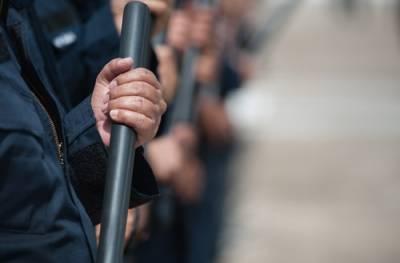How Does Police Violence Affect Victims and Others in the Community?
 Police violence has been an ongoing issue in the United States for decades. In recent years, there have been multiple high-profile incidents in which police have been caught on video using excessive force against criminal suspects and taking actions that led to the deaths of people who were unarmed. While these documented examples of inappropriate police violence are shocking enough, there are many other cases where police commit egregious acts of brutality without facing any consequences.
Police violence has been an ongoing issue in the United States for decades. In recent years, there have been multiple high-profile incidents in which police have been caught on video using excessive force against criminal suspects and taking actions that led to the deaths of people who were unarmed. While these documented examples of inappropriate police violence are shocking enough, there are many other cases where police commit egregious acts of brutality without facing any consequences.
While there have been multiple protests and calls for reform, not enough has been done to stop police violence from occurring. In fact, according to Mapping Police Violence, the number of people killed by police throughout the United States has steadily increased between 2019 and 2022. To make matters worse, minorities are disproportionately affected by the actions of police. Even though Black people make up around 13 percent of the U.S. population, they account for around 25 percent of police killings, and they are 2.9 times more likely to be killed by police than white people.
Effects of Police Killings on the Black Community
There are many people who are directly or indirectly affected by police violence. In addition to victims who are injured or killed, family members are likely to experience personal and financial difficulties due to the loss of a loved one, as well as emotional trauma. However, the effects of police violence extend beyond those who are directly or indirectly affected, and the community as a whole can suffer harm.
Multiple studies have examined the ways that Black people are affected by killings of unarmed victims by police officers. One study reviewed hospital records and found that after these incidents, there is often an increase in the number of Black people who seek emergency care for depression or other mental health issues. Another study found that when an unarmed Black person is shot by police, Black people throughout the state where the incident occurred are more likely to experience mental health issues during the following three months.
There are numerous reasons why communities are negatively affected by police violence. Many people experience feelings of grief and loss, and even if they are not directly affected by an incident, they may fear that they or someone they love could be a victim in the future. At the same time, they may feel that there is no way to combat the prevalence of police violence, since police are so entrenched in American society, and police officers who engage in violence or brutality are often protected from accountability. The disproportionate impact of police violence against minorities can also lead to feelings of fear and despair, especially since victims are often blamed for the actions of police officers. All of these factors, as well as the ongoing racism and discrimination that affects the Black community, can not only affect people's mental and emotional health, but these issues have contributed to a lower life expectancy for Black people when compared to people of other races.
Contact Our Hartford Criminal Defense Lawyer
Even though there may seem to be more cases where police officers are held accountable for using excessive force or engaging in acts of discrimination, there are still far too many people who are affected by these issues. At Woolf & Ross Law Firm, LLC, we work to help people navigate the criminal justice system while addressing police brutality, unjustified violence, and other illegal or inappropriate practices. We can provide guidance on how these issues may affect a criminal case while ensuring that defendants have the legal representation they need to address the charges against them. To learn more about how our Connecticut criminal defense attorney can provide experienced, dedicated legal help in these situations, contact our office at 860-290-8690 and schedule a free consultation.
Sources:
https://www.nytimes.com/interactive/2023/05/25/well/mind/black-mental-health-police-violence.html
https://thurgoodmarshallcenter.howard.edu/sites/tmcrc.howard.edu/files/2021-05/A%20Growing%20Dilemma%20-%20How%20Police%20Brutality%20Affects%20Mental%20Health%20in%20the%20Black%20Communities.pdf
https://mappingpoliceviolence.org/






